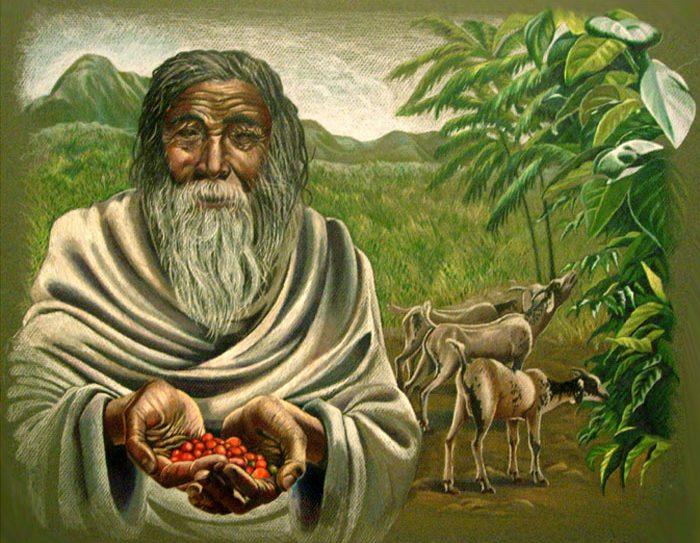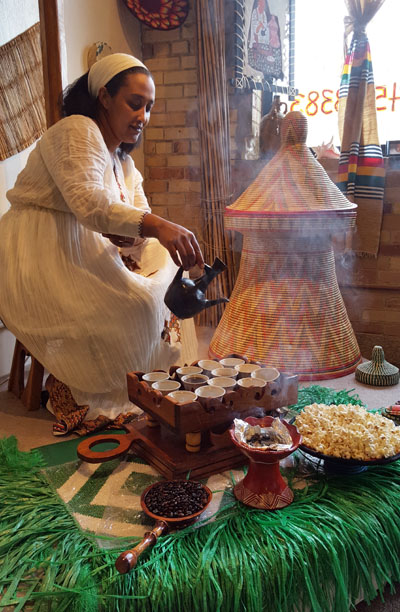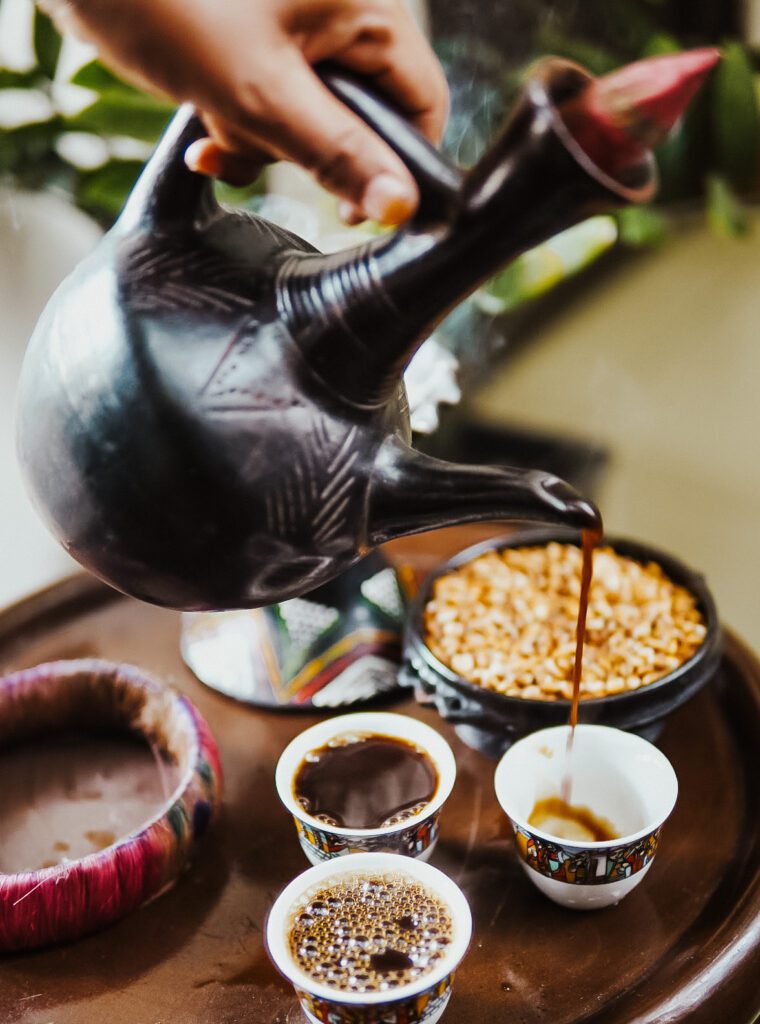The Coffee Culture of Ethiopia
A Journey from Bean to Cup
**Introduction**
In the highlands of Ethiopia, a tale of discovery was born — a story that sparked a worldwide love for a simple beverage, coffee. Ethiopia, renowned as the cradle of coffee, has an intimate and profound relationship with this beloved drink that goes beyond the mere act of consumption. From the legendary goat herder Kaldi to the intimate coffee ceremony, the culture of coffee in Ethiopia is a fascinating journey from bean to cup.

**1. The Legend of Kaldi**
Centuries ago, so the story goes, a young goat herder named Kaldi noticed his goats dancing with unusual fervor after consuming a particular red berry. Curious, Kaldi sampled the berries himself, felt the same rush of energy, and couldn’t wait to share his discovery. This legendary tale of Kaldi, alive in the hearts of Ethiopians, marks the advent of coffee. This drink would eventually make its way around the globe.
**2. Coffee Production in Ethiopia**
Ethiopia has the perfect conditions for coffee cultivation — high altitude, ample rainfall, and diverse regional climates. As a result, predominantly Arabica coffee beans thrive here, each region lending a unique flavor profile. As a result, Ethiopian coffee is a palette of complex flavors, from the fruity undertones of Sidamo beans to the wine-like taste of Harrar and the floral hints of Yirgacheffe.
The production process is as unique as the beans themselves. Most Ethiopian coffee is grown by smallholders on tiny plots of land using traditional methods. The beans are typically sun-dried, imparting a distinct flavor that sets Ethiopian coffee apart.
**3. The Ethiopian Coffee Ceremony**
More than just a drink, coffee is a ritual, a time for community, and a warm welcome to guests in Ethiopia. The traditional Ethiopian Coffee Ceremony is an art in itself. The ceremony begins with the roasting of green coffee beans in a pan. Next, the aromatic beans are ground using a pestle and mortar and brewed in a ”jebena,” a traditional clay pot. Finally, the coffee usually served with sugar or sometimes salt, is poured gracefully into small, handleless cups called ”cini”. This ritual is repeated three times, signifying transformation and loyalty.
**4. Coffee’sCoffee’s Role in the Ethiopian Economy**
Coffee is not just the heartbeat of social life in Ethiopia; it’s also a cornerstone of the economy. Ethiopia is one of the world’s top coffee producers and exporters. Millions of Ethiopians depend on coffee farming and trade for their livelihoods. The country’s distinctive, high-quality beans command respect in the global coffee market, further elevating Ethiopia’sEthiopia’s coffee status.
**5. Coffee Houses and Modern Coffee Culture in Ethiopia**
The social fabric of Ethiopia is woven around coffee. ”Bunna bets or coffee houses are social hubs where people gather to enjoy coffee and engage in lively discussions. In recent years, modern coffee culture has also started brewing in Ethiopia. Alongside traditional bunny bets, specialty coffee shops serving espresso-based drinks are rising, catering to a growing urban populace and tourists.
**6. Ethiopian Coffee at Home and Abroad**
The allure of Ethiopian coffee extends far beyond the country’scountry’s borders. It is savored in homes and cafés worldwide, appreciated for its rich flavor and story. And for those eager to replicate the Ethiopian coffee experience at home, it’s pretty simple. Start with freshly roasted Ethiopian beans, grind them, and brew them in a pot. The key ingredient, of course, is to savor it slowly, in the company of others — just as it’s done in Ethiopia.


**Conclusion**
The culture of coffee in Ethiopia is a testament to the country’s rich heritage and the value they place on the community. It’s not merely about the beverage but the shared experience it fosters, the stories it tells, and the traditions it upholds. It’s a rich tapestry of social rituals, economic reliance, and cultural symbolism intertwined in brewing and enjoying coffee.
From the legend of Kaldi to the bustling coffee houses in Addis Ababa, the journey of Ethiopian coffee is a fascinating story of tradition, community, and the enduring power of a simple red berry. So as you sip your next cup of coffee, please take a moment to appreciate the journey from its Ethiopian origins to your cup. And suppose you ever get a chance to participate in an Ethiopian coffee ceremony; seize it. In that case, a unique cultural experience will leave a lasting impression.
As the Ethiopian proverb goes, “Buna dabo naw.” This means “Coffee is our bread.” And in Ethiopia, coffee is indeed life, steeped in tradition and brewed with passion. So here’s to Ethiopian coffee – a timeless gift to the world. Cheers!
